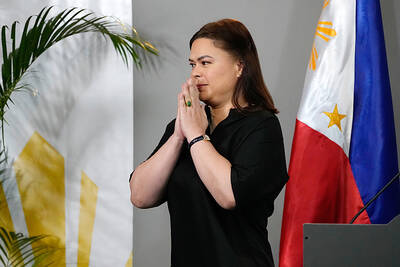US President George W. Bush's approval rating is 48 percent, the lowest in three years, and 50 percent don't want him to be re-elected in November, a Newsweek poll said.
The nationwide poll of 1,004 adults taken Feb. 5-6 showed that 45 percent said they would like to see Bush re-elected. Bush's job approval was 49 percent in last week's poll, and 50 percent the week before.
This week's rating was the lowest since February 2001, a month after Bush took office. The survey has a 3 percentage-point error margin.
Democratic front-runner John Kerry, a Massachusetts senator, would win the election over Bush if the contest were held today, with 50 percent of voters supporting Kerry, the poll found. About 45 percent said they would vote for Bush.
Bush would beat Kerry's Democratic rivals, the survey found.
The poll showed Bush leads North Carolina Senator John Edwards by 49 percent to 44 percent, former Vermont Governor Howard Dean by 50 percent to 44 percent and retired General Wesley Clark by 51 percent to 43 percent.
Another survey showed Bush's decline in public opinion started after David Kay, who quit last month as leader of the search for chemical and biological weapons in Iraq, said he didn't believe the Middle Eastern country had any of the banned weapons, the Associated Press reported.
The National Annenberg Election Survey found Bush's approval rating fell 10 points from Jan. 25-31, to 54 percent from 64 percent. The tracking poll of 1,032 adults takes a nightly sample and rolls together two or three nights' findings at a time. It has a 3 percentage-point error margin.
Public support for Bush declined 9 percentage points over the last month, according to an AP-Ipsos poll of US adults released yesterday.

FEROCIOUS FISH-EATER Scientists have found a new species of dinosaur from the Cretaceous Period, a ‘hell heron’ that stalked the rivers, deep in the Saharan desert At a remote Sahara desert site in Niger, scientists have unearthed fossils of a new species of Spinosaurus, among the biggest of the meat-eating dinosaurs, notable for its large blade-shaped head crest and jaws bearing interlocking teeth for snaring fish. It prowled a forested inland environment and strode into rivers to catch sizable fish like a modern-day wading bird — a “hell heron,” as one of the researchers put it, considering it was about 12 meters long and weighed 5-7 tons. The dinosaur presented a striking profile on the Cretaceous Period landscape of Africa some 95 million years ago as it hunted

‘COST OF DEFECTION’: Duterte’s announcement could be an effort to keep allies in line with the promise of a return to power amid political uncertainty, an analyst said Philippine Vice President Sara Duterte yesterday announced she would run for president of the Southeast Asian nation of 116 million in 2028. Duterte, who is embroiled in a bitter feud with Philippine President Ferdinand Marcos Jr, was impeached last year only to see the country’s Supreme Court throw the case out over procedural issues. Her announcement comes just days before her father, former Philippine president Rodrigo Duterte, begins a pretrial hearing at the International Criminal Court (ICC) in the Netherlands over crimes against humanity allegedly committed as part of a brutal crackdown on drugs. “I offer my life, my strength and my future

NOT YET THERE: While the show was impressive, it failed to demonstrate their ability to move in unstructured environments, such as a factory floor, an expert said Dancing humanoid robots on Monday took center stage during the annual China Media Group’s Spring Festival Gala, China’s most-watched official television broadcast. They lunged and backflipped (landing on their knees), they spun around and jumped. Not one fell over. The display was impressive, but if robots can now dance and perform martial arts, what else can they do? Experts have mixed opinions, with some saying the robots had limitations and that the display should be viewed through a lens of state propaganda. Developed by several Chinese robotics firms, the robots performed a range of intricate stunts, including martial arts, comedy sketches and choreographed

DRUG WAR: The former president said there was no campaign to kill addicts, but his speeches called for violence and told police to use lethal force if necessary Former Philippine president Rodrigo Duterte earned global infamy for the deadly drug crackdown that led to his arrest over crimes against humanity charges, despite his huge popularity at home. A profane-lipped populist and self-professed killer, Duterte’s anti-crime campaign resulted in the deaths of thousands of alleged dealers and addicts. Rights groups said many of those killed were poor men, often without any proof they were linked to drugs. Yet, while drawing condemnation abroad, tens of millions of Filipinos backed his swift brand of justice — even as he joked about rape in his rambling speeches, locked up his critics and failed to